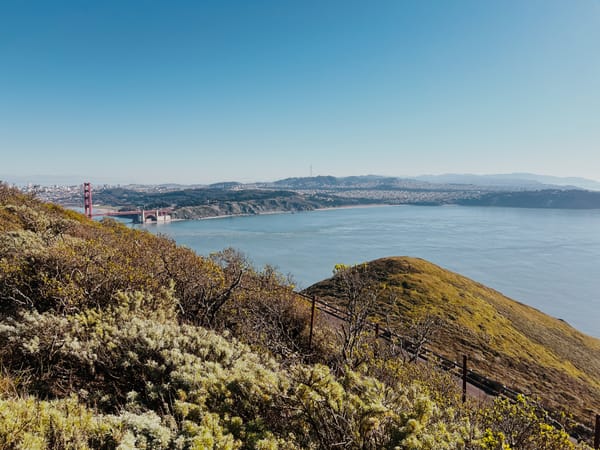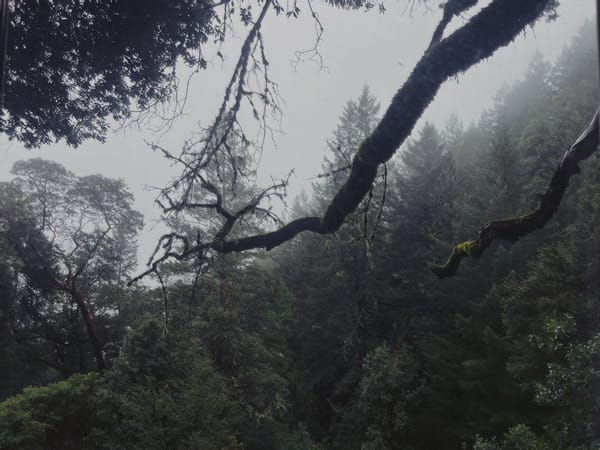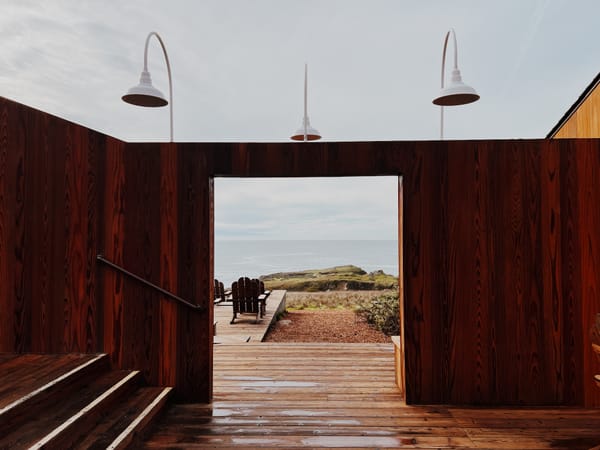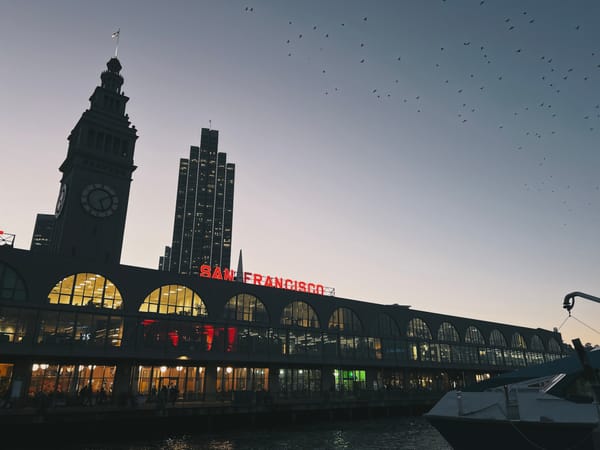Instead of avoidance
What if we saw difficulty as a koppie to scramble up?
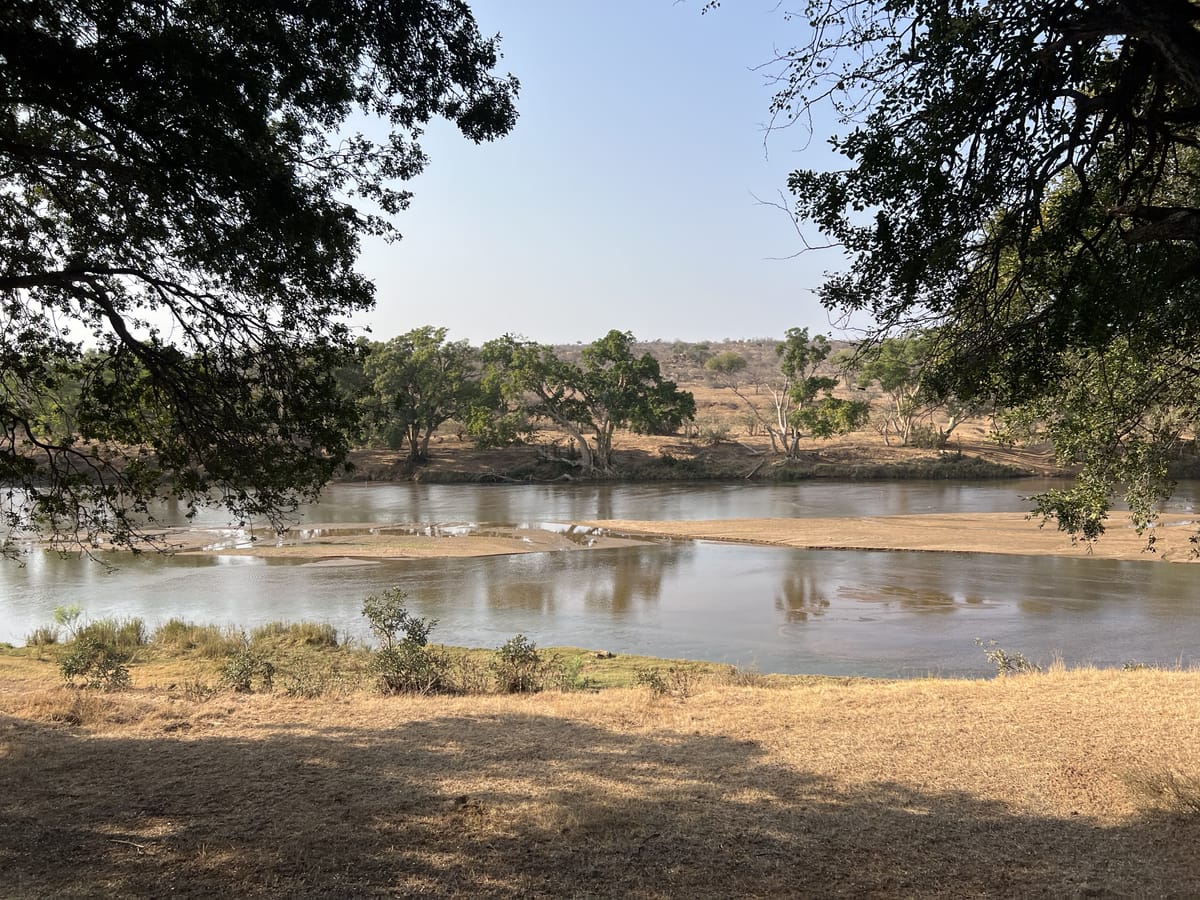
Hello from the Olifants River!
I’m making the most of a gap between classes at Stellenbosch University to get my bosveld fix (and some sun) in the Greater Kruger.
There’s nothing quite like sitting on a stoep deep in my beloved bush to get me into a philosophical mood. (It’s quite possible, though, that the ruminating I inflict on you below is a means of avoiding the revisions I’m supposed to be doing on my novel 😅.)
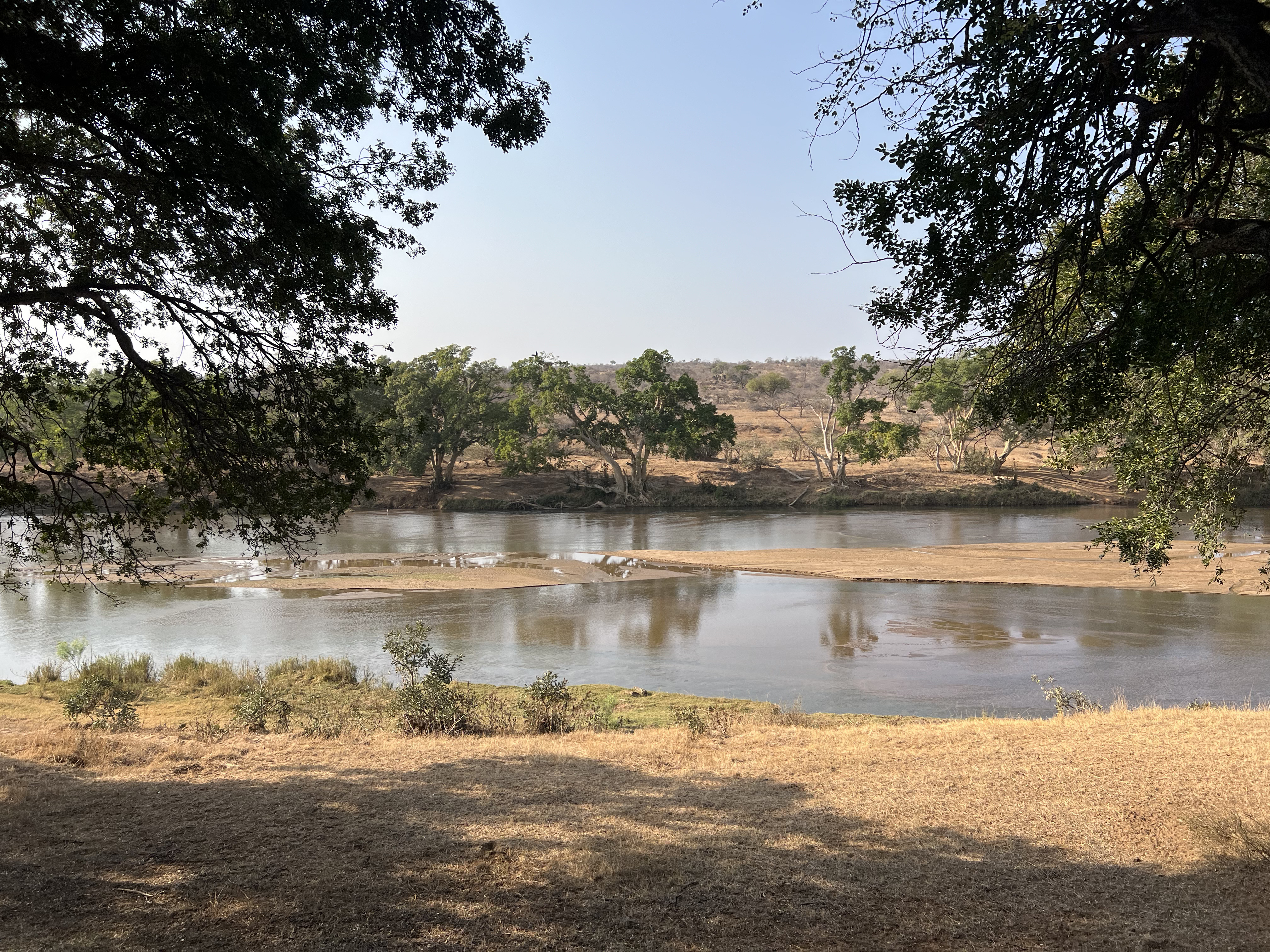
Turning towards difficulty
Ever since I can remember, I’ve been highly averse to conflict and uncomfortable feelings. Avoidance, withdrawal, procrastination, instant gratification and making-do have typically been my go-to stratagems since childhood. (As an adult, so was using alcohol to numb, soften and escape — though mercifully it’s now been a while1 since I self-medicated with that).
Right now, I feel like I’m in a period of “unlearning2”, especially when it comes to how I relate and react to things that are/seem difficult or stuck. I am beginning to recognise that life is complicated and difficult, but often more so than it has to be.
Even when we have it in our power to try to change things, so often we don’t.
I think that’s because instigating change is often scary. It can involve leaps, risks, the unknown, potential conflict, potential alienation (and, perhaps most alarming of all, potential breakthroughs).
To be stuck in difficulty is to live with the devil you know. It offers a carapace of familiarity and predictability3; lets you be armoured with grievances.
An important caveat: There are seasons and situations where making do is arguably all that should be done at that point. Where to risk change is perhaps too dangerous or premature; or perhaps the cost-benefit ratio is too out of whack. In those instances, caution should prevail, sure.
BUT, I think we must be wary of resorting too quickly to using terms like “hard”, “difficult” or “complicated” to diagnose (and therefore essentially dismiss) parts of our life — whether that be at work, in relationship(s) with friends and family members, or aspects of our mental and physical wellbeing. If we keep doing so — reflexively, defensively — “It’s hard!” becomes a justification, over the longterm, for continued inaction, procrastination, avoidance. (I write this as someone who has extensively deployed all three over the years!)
Life is “difficult”, life is “hard”.
Hands thrown into the air, we use those adjectives as an excuse to defer, to avoid, to explain away.
This approach is not so much the surrendering to circumstances than a refusal to address them in any meaningful way. It is to say: Change is a heavy lift; I’m not willing to make that heavy lift. And so I will tinker at the edges, treating symptoms with temporary salves, I will see myself as victim. We do that (or at least I have, often, in the past) because there is safety and familiarity in victimhood, and there is comfort in yearning, in the predictable burning ache of it. And the patterns — of longing, of denial, even of resentment — can be like well-trodden paths. They’re so much easier to follow than to strike out, bushwhacking through uncharted emotional landscapes.
Of course there are risks.
To bushwhack is to risk even greater loss and hurt than the small, quiet sacrifices, compromises and accommodations that make up daily life. It is to swipe and stumble towards — if not a cure, then at least a means of grappling (however messily) with the cause(s) of our difficulties.
This grappling offers no guaranteed payoff. No clear and predetermined outcome. There is the risk of losing, and of getting lost. I’ve become increasingly convinced, though, that those risks pale in comparison to the corrosive, stultifying effects of avoiding life, avoiding reality, avoiding heavy lifting, of sticking — with resolute and embittered smugness — to the hardness and difficulty that is familiar, to the devil we know.
What if we saw difficulty as a koppie to scramble up, bruises and scratched legs be damned?
We might not know what the view will be from the summit, but surely there is something to be gained from the attempt, from the willingness to engage with this ascent, rather than be stonewalled by it?
What would happen if we didn’t shy away from it, if indeed we turned towards the difficulty, if we saw it as something to dance with and through and up rather than endlessly around and around and around4?
We cannot confidently predict what will happen.
But the possibility of real change, of growth and authenticity, of purpose and meaning, of being (at the very least!) wide awake and alert to the world in all its troubling, exhilarating, baffling, heartbreaking richness and complexity — that, I strongly suspect, is a risk worth taking.
Life, after all, is short.
MORNING RUSH-HOUR
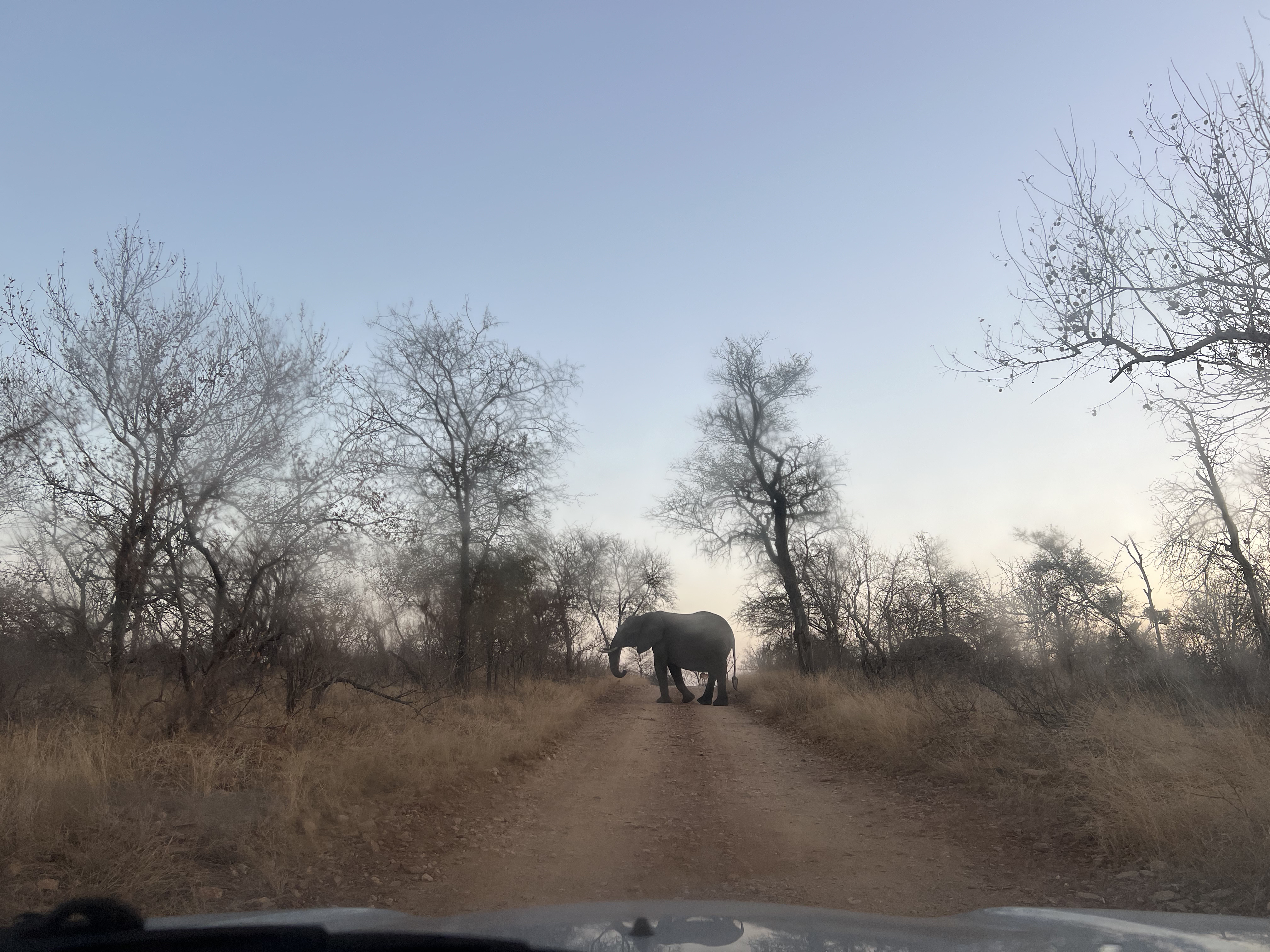
I was on my way to yoga very early yesterday, flushed with the success of having (at last) figured out how to put my stick-shift rental car5 into reverse. Looked up, and saw elephants blocking my way. The first thing I felt was annoyance, alarm, even, that they might make late me for class. Only then came the wonder, the delight, and the sheepish realisation that — even if they did make delay me — that it didn’t really matter, that the yoga teacher would understand.
A while = over 16 months. Crazy. ↩
I think this unlearning is happening, in part, thanks to the work I’m doing with my psychologist (using tools drawn from Acceptance and Commitment Therapy and Exposure and Response Prevention, among other modalities) and the skills I’m learning through Alcoholics Anonymous. Both, I think, see vulnerability — and the discomfort that this vulnerability might lead to — as offering chances to grow, change and recalibrate. Another container for vulnerability, for allowing difficulty and discomfort, came with a recent three-night primitive trail I did in Makuya Nature Reserve. I hope to write more about that experience another time. ↩
Until something like a parent’s terminal cancer diagnosis happens. Then predictability goes right out the window. ↩
This is certainly not an original question. In her book Radical Acceptance, for example, Tara Brach I think frames this engagement as “inviting Mara to tea”. I read that book YEARS ago. And yet I still find myself coming back to this as if for the first time. “Unlearning” is a layered process, I guess! ↩
A very budget offering from Budget. ↩
